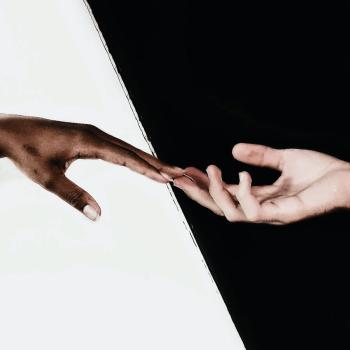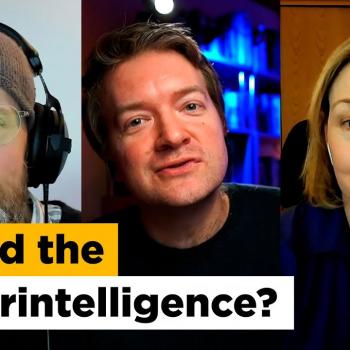 Esther O’Reilly says The Big Conversation between Douglas Murray and N.T. Wright has lessons for both atheists and Christians.
Esther O’Reilly says The Big Conversation between Douglas Murray and N.T. Wright has lessons for both atheists and Christians.
Douglas Murray’s old vicar isn’t sure what to say. Over post-service coffee, he feels like this is his cue to say something. But what? He clears his throat. “I don’t like to ask. I mean it really isn’t my business.”
“It,” meaning Douglas’s deconversion from Christianity, which by now has become public knowledge. The vicar admits this after some gentle prodding, whereupon he hastens to stutter out an apology. “I’m so sorry. I shouldn’t have said anything. It’s not my business.”
Douglas disagrees. “It really is. More than anyone’s really.” But, he suggests tactfully, “It’s complicated.”
The vicar nods, feeling relieved. “Isn’t it?” In British style, they agree, “Yes, isn’t it just?” Things putter on from there, to no grand conclusion.
I thought back to this exchange, from Murray’s Spectator lament on the COVID shuttering of his old church, when I watched his Big Conversation dialogue on Unbelievable? with N. T. Wright. At one point, Wright laughs and apologizes for sounding like “a cracked record,” because he’s about to bring up Jesus again. But so far from being put off, Murray hastens to tell Wright that no, it’s fine actually. More than fine, “It’s the most important thing to do. It’s an enormous relief to hear it.”
Such a relief! A CofE bishop who actually talks about Jesus!
Gen-X, Millennials & Boomers
Wright took several opportunities to do just that over the course of their dialogue, whose guiding question was “Can we find a story to live by in a post-Christian world?” As usual with these things, the conversation was over just as it had really begun to cook. (Some of us have been encouraging Justin Brierley to “go full Rogan” for some time now, but who listens to us?) It felt as if the two were finding each other across a generational divide. As a Gen X-er who almost qualifies as a millennial (born 1979), Murray writes with his finger constantly on the pulse of our post-Christian world. Consequently, he is tuned in to certain socio-cultural frequencies that Wright’s somewhat sheltered boomer ears are just starting to pick up.
Wright graciously conceded this as they worked out their recent disagreement in the pages of The Spectator. Murray had raised an alarm about “anti-racism” in the CofE, and Wright’s first response was that the Church should have been “anti-racist” all along. His letter to the editor reads much like you would expect from someone whose perspective on social justice was shaped by the first wave of the Civil Rights movement. But upon reading Murray’s Madness of Crowds, Wright said he was properly shocked by the book’s “dystopian” vision of new “justice” movements which aren’t about “justice” at all—in fact, quite the opposite.
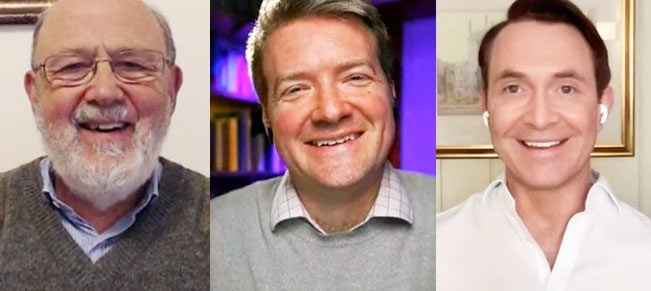
Much analysis has been written about how this new wave is its own kind of ersatz religion, complete with its own creeds, sacraments, blasphemies, prophets, and martyrs. This is not quite the future pictured by the New Atheists, who thought their books and lectures would usher in a new religion-free rationalist’s golden age. They should have heeded the wisdom of that great philosopher, David Foster Wallace: “In the day-to-day trenches of adult life, there is actually no such thing as atheism. There is no such thing as not worshipping. Everybody worships. The only choice we get is what to worship.”
Keep Christianity weird
Meanwhile, too many Western churches on both sides of the pond decided a while ago that the only way to remain “relevant” was to gut their own statements of faith and serve up the political flavor of the day, in a mildly “spiritual” package. Don’t talk about miracles, except the metaphorical kind. Don’t talk about the bodily (ugh) resurrection. And whatever you do, don’t use the “s” word, sin. (Unless it’s a safe sin to go after, like white supremacy.)
This has come to irritate Murray, much like it irritates his colleague and fellow uneasy agnostic Tom Holland. “You had one job!” they both want to shout. “Be distinctive! Be different! Be weird!”
Indeed, as my friend Father Daniel French recently overheard and tweeted, “Nobody under 40 is going to a church that isn’t weird.” On its face, this could mean any number of things, including heretical things. But increasingly, “weird” has come to be code for “a church whose ministers will actually look at you with a completely straight face and tell you that yes, Jesus really was born of a Virgin, and also yes, he really did physically rise from the dead after really dying.”
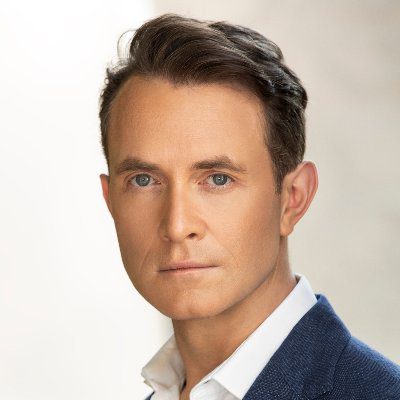
On that Virgin Birth bit, Murray relayed a little anecdote about his old mentor Christopher Hitchens that I don’t think I had ever heard before. When Murray was about my age, the two were having a drink in Washington, as was their wont. Hitchens had just seen a Spectator poll asking an array of writers, politicians, etc., whether they believed in the Virgin Birth. Young Douglas had answered “Yes of course.” Hitch was surprised. “I saw your answer to that poll in The Spectator,” he said. (You can just hear it in The Voice).
Here no doubt Douglas’s stomach flopped a bit. Oh no. What will Christopher say now?
“You could have knocked me over with a feather,” Hitch went on. “I’d no idea you were that way.”
Of course, if a man were to tell The Spectator he was that way in a different sense, Hitch would never have been so bold. But “coming out” as a “believing-in-the-Virgin-Birth Christian”? Well. That’s different.
At the time, Douglas had defended his answer in print by saying that he didn’t see the point of calling oneself a Christian while fudging it on the Christian truth claims. But the following year, he would confess that though he’d said “Yes,” he felt “No.” If he was honest, he had lied. The “true myth” was already, for him, becoming only a myth.
And yet, as Murray says in the Wright conversation, he’s always winced at that word “only.” After all, would we say a great Shakespeare play or Dostoevsky novel is “only” a story? Don’t they reveal true things about the human experience—indeed, the most profoundly true things of all?
Wright would reply that of course they do, and that as such, they function as signposts, pointing the way towards that capital “M” Myth, that capital “S” Story, which fulfills and consummates all our small “m” myths and small “s” stories. The same is true for the poems we write, or the music we make, or indeed any thing of beauty. The question is, where does it all tend? To what, or to Whom, does it all point?
Is anything sacred?
Murray further notes that there is a darker kind of signpost, a negative inverse so to speak: It is very hard to be a consistent nihilist. The French novelist Michel Houellebecq is the only writer he can think of who comes close. But even Houellebecq has his flashes of humanity, like the moment when he encountered a horribly scarred victim of a terrorist attack. Overcome with emotion, Houellebecq looked the man in the face and murmured an echo of Jesus’ cryptic words in Matthew: “Men of violence take it by force.” Then he left, unable to bear it.
By chance, I recently read a Houellebecq essay that struck me as another such flash, a scathingly prophetic word against the legalizing of “death with dignity” in France. It is a grim, hopeless essay, but I wouldn’t call it the work of a nihilist. To the contrary, it seems that Houellebecq is rather like Murray himself—disturbed by what happens when atheists begin to draw the fully logical conclusions of their premises. I myself was just in The Spectator writing on Richard Dawkins’s advice to women carrying disabled babies (fetuses, sorry). To Dawkins, it’s straightforward: “Abort it and try again.” And if that makes you clutch your pearls, he will take cover behind the silent majority for whom he insists he’s just saying the quiet part out loud. Indeed, as a Spectator subscriber, I have the perk of access to the comments under an article. At the risk of sounding click-baity, what I found under mine will shock you.
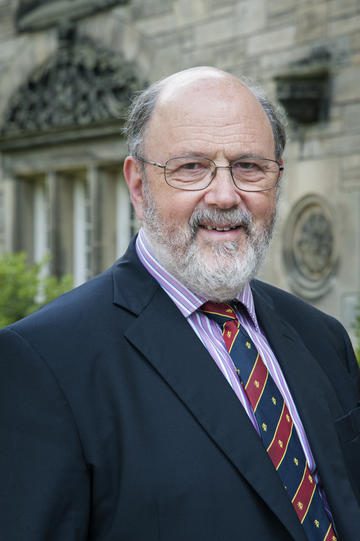
But, as I note in the piece, Dawkins doesn’t shock Tom Holland, who reminded everyone in a tweet that this is exactly what Nietzsche predicted. In a similar vein, I constantly point people to Murray’s troubled 2014 Spectator piece “Would human life be sacred in an atheist world?”, where he takes a long look into the abyss and comes away with the queasy sense that there’s nothing for it but to “go back to faith,” whatever that’s supposed to mean now.
That instinct has prompted Murray sometimes to self-identify as a “Christian atheist,” a phrase Holland also quite fancied when I introduced him to it. But it’s a deliberate oxymoron. It naturally raises questions. I remember Andrew Klavan once telling me he was less than impressed with it, saying it reminded him of a man who sees footprints in the snow but fails to draw the natural inference.
I made this point a bit less bluntly to Douglas in our own Unbelievable? dialogue the other year, raising the observation once made by A. J. Balfour that “for a creed to be truly consistent, there must exist a correspondence between the account it gives of the origin of its beliefs and the estimate it entertains of their value; in other words, there must be a harmony between the accepted value of results and the accepted theory of causes.” Some of us (though not all) still accept that human beings are all equally valuable—that they are all, in some mysterious sense, image-bearers. But whose image is this? And whose inscription?
Maybe we don’t know. But maybe it doesn’t matter. Maybe you can “free-ride” on the legacy of Christianity while keeping your own nose clean. But can you though?
What would it take to believe?
N. T. Wright answered this in Q & A with his own perceptive analogy:
It’s rather like saying…supposing my wife didn’t exist but I could still have a lovely home and well-cooked meals etc., etc., would that be all right? And the answer is of course not, because it’s all about her and being with her. Christianity is all about Jesus. It isn’t Jesus so-that-we-can-have-something-else.
Justin Brierley, ever the obnoxious pushy evangelical (we love you, Justin) asked Douglas what he thought it might take for him to resolve his uneasiness and re-embrace the faith of his youth. Is the barrier an intellectual one? Would a “minimal facts” presentation be the ticket? (Here I’m shaking my head no, violently no, please no.) Or a primer on gospel reliability, perhaps? (Yes, I nod, good, better.) Or perhaps… are we asking the wrong question?
Douglas answered honestly that he couldn’t say what it would take. He’s not even transparent to himself, he admits. “It’s too complicated.”
It was interesting for me to compare this answer with the answer Douglas gave in our dialogue. At that time, he said he thought he “would need to hear a voice.” My first response was to say that I thought God had left Himself enough witness that we could come to faith without being guided by an audible voice. It was a perfectly acceptable response. But had I gotten a redo, I might have responded differently. I might have asked Douglas if he’s quite sure he wants to hear a voice. Would it be enough to know it came from God? There was certainly no mistaking what the Apostle Paul heard. But it certainly wasn’t what he wanted to hear.
And there’s the rub. We Christian apologists are so occupied with making sure people have got all the good “reasons to believe” that we forget to ask a different kind of question: Even with reasons, would you believe?
Douglas would like to, or so he tells Justin. He says he can’t understand people who don’t want it to be true. I believe he sincerely means this. And yet, I wonder what he would make of Paul Kingsnorth’s testimony. Paul will tell you he decidedly did not want it to be true, even after his own divine intervention was already underway. “You’re going to become a Christian,” his wife told him. “A Christian?” he thought. “Me? What could be weirder?”
Douglas insists that he wants the Church to be herself—her faithfully credal, counter-cultural, weird self. And yet, as a young man, he admired “apostles of doubt” like Don Cupitt, or the defrocked bishop Richard Holloway, who became infamous for his own brand of “godless morality.” This included sexual morality. When gay couples approached Holloway, he married them, as an act of defiance against what he saw as outdated religious bigotry. Counter-cultural, this was not.
And so the uncomfortable question arises: Just how much “weirdness” do we really want? This weird, but no weirder? This far, but no farther?
We aren’t transparent to ourselves. We don’t change our minds on a hairpin turn. We can’t flip a switch and “just believe.” Oddly enough, and fittingly for this context, I recall Tom Holland once explaining this difficulty with a comparison to sexual orientation: One does not simply wake up in the morning and decide not to be gay, any more than one wakes up and decides not to be an atheist. (This is third-rail territory, I’m well aware, but I bring it up not to imply that both kinds of “conversion” necessarily go hand in hand. I merely wish to underscore that we are complex creatures, in more senses than one.)
In the end, only Douglas knows what Douglas’s path will be. Aslan tells no man any story but his own. And no two stories are exactly alike.
The evidence of example
Recently, I heard the Catholic author Mary Eberstadt share a story about a friend who had converted to Christianity. “What did it for you?” Mary asked her. “Was it a philosophical argument? Biblical scholarship? Art? Something else?” The friend said no, none of the above. It was the simple example of a Christian family she knew who was kind to her. She saw what they had, and she wished she had it.
In late years, many of us have fretted and fussed over another “celebrity agnostic,” Jordan Peterson, wondering what might “do it” for him, what might be the magic ingredient. Again, only Jordan knows that answer. But one personal “signpost” for him has been the example of his wife, Tammy, who has pursued Christianity in the wake of her own near-death experience. Jordan says he has been “watching her” carefully, and he can see she has been transformed, refined—one might say sanctified. He doesn’t claim to understand it. But he sees what she has, and he wishes he had it.
In the same way, Douglas Murray may not fully understand what he sees when he sees a black mother forgive her son’s killer or watches beleaguered African Christians at prayer—these people whose daughters’ first instinct as their kidnappers close in is to grab their Bibles. But he sees what they have, and he wishes he had it.
More’s the pity that so many in the West have forgotten what they used to have. More’s the pity that Douglas wanders back to his home church only to find its doors shut “due to the pandemic.” And so he and others like him wander on, nomads who still hear the echo of the song they knew as boys, and have never forgotten.
Perhaps that echo is growing fainter. But it falls upon us, who still know the song, to keep on singing.
ESTHER O’REILLY is a maths Ph.D. and widely published cultural critic. She blogs for Patheos at Young Fogey and maintains a weekly newsletter Further Up at estheroreilly.substack.com.
Watch The Big Conversation between Douglas Murray & NT Wright
Subscribe to the Unbelievable? podcast



